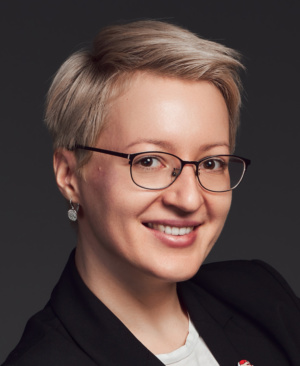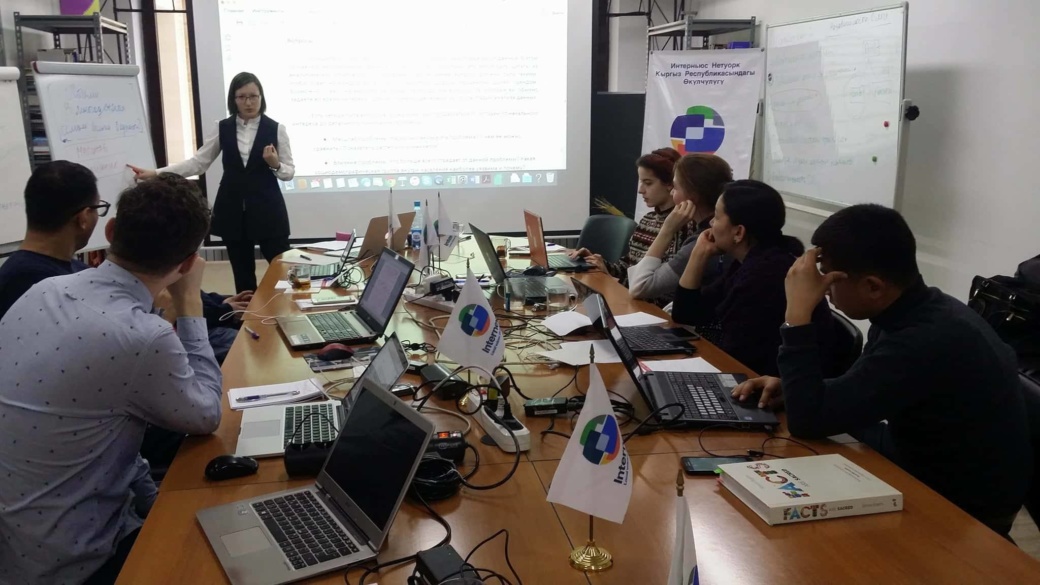Moscow, Russia | Bishkek, Kyrgyzstan
TRACE Foundation Fellow
 Valeeva, 34, is a data journalist, data editor, mentor and coordinator of data projects. She’s led investigative reports on subjects such as migration, gender equality, and domestic violence. Her sponsor, The TRACE Foundation, is a non-profit organization that supports projects that encourage greater commercial transparency.
Valeeva, 34, is a data journalist, data editor, mentor and coordinator of data projects. She’s led investigative reports on subjects such as migration, gender equality, and domestic violence. Her sponsor, The TRACE Foundation, is a non-profit organization that supports projects that encourage greater commercial transparency.
After training at the Missouri School of Journalism, Valeeva will work for The Marshall Project, a nonprofit news outlet that covers the U.S. criminal justice system.
In September 2021, Valeeva ran an investigative story project about the deterioration of public schools in Kyrgyzstan published by several media outlets in Kyrgyzstan, both in Russian and Kyrgyz languages. She wrote the text and created the data visualizations while coordinating the work of the team of 20 people.
Anastasia worked with local newsrooms in Kyrgyzstan as a guest editor and mentor, helping them expand their knowledge and learn data journalism.
For three years, she was the lead mentor for the Data Journalism Fellowship run by Internews Kyrgyzstan, a program that enables participants to master data analysis and visualization skills as well as adapt best practices of data-driven storytelling. Valeeva also co-founded the Kyrgyzstan School of Data, which has a mission to increase data literacy and shape the data community in Central Asia.
Anastasia has taught data journalism and worked with local journalists on data stories in Europe, Balkans, Central Asia and Russia. In 2016, she researched the use of open data in investigative journalism as part of her fellowship at the Reuters Institute for the Study of Journalism, in Oxford, England. Valeeva helped reporters from the Kyrgyz news outlet Kloop with stories on election tampering and issues related to corruption. Valeeva in fall 2021 completed a course by Columbia University’s journalism school focusing on coding and data analysis.
From application essay:
“These are all small changes which, together, I hope, will make a bigger change one day. And now, after three years, I feel there’s a need to level up everything. I am happy to see more journalists working with data in Kyrgyzstan than ever before, editors ready to commission and pay for these stories, and donors being interested to sponsor training and story production. But we are still at the beginning of the path. “I am mostly interested in social justice stories, including migrants’ rights, access to education and healthcare, gender equality and other related topics.” (She wants to do investigative reports on) systematic corruption and fraud and its impact on the lives of people.”
Articles
Kyrgyzstan survives on migrants money, doesn’t know how to spend it
Reportage on Alexey Navalny’s trial, in English: The burning train
What are the Consequences of Secondary Education Crisis in Kyrgyzstan?
What prevents girls in Kyrgyzstan from finding their true vocation?
For Niemanlab: Chat app Telegram despised by Russian government attracts loyal readership



